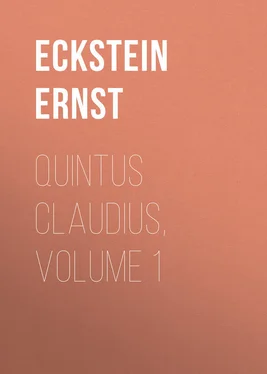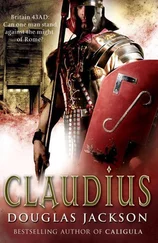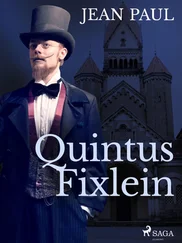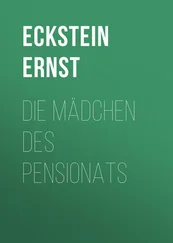Ernst Eckstein - Quintus Claudius, Volume 1
Здесь есть возможность читать онлайн «Ernst Eckstein - Quintus Claudius, Volume 1» — ознакомительный отрывок электронной книги совершенно бесплатно, а после прочтения отрывка купить полную версию. В некоторых случаях можно слушать аудио, скачать через торрент в формате fb2 и присутствует краткое содержание. Жанр: foreign_antique, foreign_prose, на английском языке. Описание произведения, (предисловие) а так же отзывы посетителей доступны на портале библиотеки ЛибКат.
- Название:Quintus Claudius, Volume 1
- Автор:
- Жанр:
- Год:неизвестен
- ISBN:нет данных
- Рейтинг книги:4 / 5. Голосов: 1
-
Избранное:Добавить в избранное
- Отзывы:
-
Ваша оценка:
- 80
- 1
- 2
- 3
- 4
- 5
Quintus Claudius, Volume 1: краткое содержание, описание и аннотация
Предлагаем к чтению аннотацию, описание, краткое содержание или предисловие (зависит от того, что написал сам автор книги «Quintus Claudius, Volume 1»). Если вы не нашли необходимую информацию о книге — напишите в комментариях, мы постараемся отыскать её.
Quintus Claudius, Volume 1 — читать онлайн ознакомительный отрывок
Ниже представлен текст книги, разбитый по страницам. Система сохранения места последней прочитанной страницы, позволяет с удобством читать онлайн бесплатно книгу «Quintus Claudius, Volume 1», без необходимости каждый раз заново искать на чём Вы остановились. Поставьте закладку, и сможете в любой момент перейти на страницу, на которой закончили чтение.
Интервал:
Закладка:
During the meal an intermezzo had now and then interrupted the eager conversation. Black-haired girls from Gades and Hispalis 176 176 Hispalis. A city in southern Spain, now Seville.
had come in, dancing to the cadence of castanets 177 177 Castanets. Castanet dances are often represented in pictures. (See O. Jahn, Fresco-paintings on the walls of the columbarium, in the Villa Pamfili.)
and cymbals; flute-players, singers and reciters had given highly-applauded evidence of their talents. But now, when the business of eating was over and the commissatio , as it was called, the drinking in short, was about to begin, as was hinted by the distribution to the guests of fresh wreaths and of perfumed oils, a buffoon or jester 178 178 Jester. Jesters, especially dwarfs, were very popular in ancient Rome. The scene that follows here is based upon various incidents in a description by Lucian, which has come down to modern times: “The Banquet, or The Lapithae” 18, 19. In this a hideous little fellow, who gives utterance to all sorts of jests and witticisms, appears at Aristaenetus’ banquet. "Finally he addressed each person with some mischievous joke – and each laughed as his turn came. But when he accosted Alcidamas, calling him a Maltese puppy, the latter, especially as he had long been jealous of the applause and attention bestowed on the jester by the whole company, grew angry, threw off his cloak and challenged the dwarf to a boxing-match. What could the poor jester do? It was infinitely comical to see a philosopher fight with a clown. Many of the spectators were ashamed of the scene, but others laughed merrily, until Alcidamas was at last beaten black and blue.”
made his appearance, and soon filled the hall with Homeric laughter. His small and muscular form was clothed in gaily-colored scraps of raiment, and his face was painted in strong colors. Entering the room with a hop, skip and jump, he performed a series of somersaults with great skill; then leaping high over the guests’ heads, actually on to the table, he placed himself in front of Lycoris and began thus in a high, shrill voice:
“Highly-esteemed friends of this illustrious house, now that your empty stomachs are duly replenished your minds too are to be no less delightfully satisfied. I offer you the feast of self-knowledge; to each one of you here I will shortly and plainly tell your fortune. If I appear to you over-bold, attribute it to the functions of my office; for audacity is my vocation, as it is that of the most honored Martial.”
A storm of applause rang through the banqueting-hall, and Martial himself even laughed heartily.
“Capital, capital!” he exclaimed to the little man. “Your beginning is admirable and promises much,” and he stroked his grizzled beard with much complacency; the jester bowed and went on with his privileged impertinences. He flung some epigrammatic and pointed remark at one and another of the company, and was each time rewarded by more or less eager applause. When he came round to the young provincial, he grinned with vicious impudence.
“Oh, noble vestal virgin!” he exclaimed, holding his hand before his face in affected coyness. “How much a hundred weight does propriety cost in Trajectum?”
His former jests had been happier and more pointed, but not one had been so readily taken; the company laughed so immoderately, that the buffoon had some difficulty in making himself heard again. Aurelius, though he was disgusted with the fellow, had discretion and tact enough not to draw attention to himself; he laughed and applauded as heartily as any one. Not so, however, Herodianus, his freedman, who reclined at the lower end of the table and had given himself up to silent and unlimited enjoyment of the Caecubum.
“What, you foul-mouthed scoundrel!” he exclaimed in a voice of thunder. “Who are you scoffing at? My dear friend Aurelius compared to a woman! Go home, and let your mother teach you manners.”
The company were in so jovial a mood, that they at once turned this interference into account. When the Batavian was about to reprove Herodianus, he was talked down, while the indignant freedman was spurred on by half-ironical appeals and challenges.
“Let him alone,” said the captain of the guard: “He will serve the jester’s turn well enough.”
“Aye, that he will!” exclaimed another. “Only look at him knitting his brows. Is not he just like the Silenus in Stephanus’ dining-hall?”
“Just be so good as to hold your tongues,” cried Quintus, who had been excessively amused by Herodianus’ pugnacity. “The little man on the table is going to answer him.”
“Silence for the jester!” shouted a chorus.
The buffoon stood still with his hand up to his ear.
“Did I not hear a pug-dog barking?” he said with inimitable comic gravity. “Yes, there he lies, a Maltese pug! Come, Lailaps, come! Here are Lucanian sausages!”
Looking impartially at the freedman’s face, it was impossible to deny that the resemblance was well hit, but Herodianus could hardly be expected to take this unprejudiced view of the matter. Forgetting where and with whom he was, he sprang from his couch, struck his fist on the table, and shouted out, crimson with rage:
“Come on, you braggart, if you dare! I will teach you, I will show you that … that… By Hercules! if you do not jump down this minute, you are the most cowardly, contemptible toad under the sun.”
The little man sprang like lightning over Stephanus’ head on to the floor, turned up the sleeves of his particolored shirt and shouted in mockery:
“Come on, Lailaps, come on! I will give you a thrashing.”
For a moment Herodianus seemed to hesitate; then he suddenly flew at the jester like the storm of wind suggested by his Greek dog-name. The jester, however, slipped on one side as quick as lightning, and Herodianus, who, indeed, was not very steady on his feet, fell at full-length on the floor. In an instant the buffoon was sitting astride on his back.
“Pug, you are snappish!” he exclaimed in a triumphant tone, and he began vigorously to belabor every part of the hapless freedman, that he could reach with his powerful fists.
“The dog must be broken!” he exclaimed at each blow. “Quiet, Lailaps, down, my noble cur!”
Herodianus, who, besides, had in falling damaged his knees and elbows, roared like one possessed; in vain did he try to throw off his tormentor. The dwarf clung to him tightly with his legs. The whole scene was as irresistibly comical as though it had been planned for the delectation of a blasé and overwrought party of drinkers. But Aurelius could no longer contain himself; he rose and went up to the combatants with well-assumed coolness.
“You are going too far,” he said. “Be off with you, you little rascal.”
The jester paying no heed to these orders, found himself suddenly picked up by the girdle and with one effort lifted high into the air. His struggles and yells were of no avail; Aurelius carried him like a feather to the table, and there set him down among the cups and wine-jars. The strength and promptness of the proceeding diverted it of any vexatious interference; the dwarf, completely quelled, stood on the table like a stork that has had its wings cut, looking round half-frightened and half-angry. The young Northman’s grip had fairly taken his breath away, and a sign from Lycoris that he might withdraw was evidently welcome to him. He vanished between the crowd of slaves like a startled deer.
Aurelius had hastened to the rescue of Herodianus, who now, having been helped on his feet by some of the servants, found the greatest difficulty in keeping on them.
“Poor fellow!” he said kindly. “But you are really quite incorrigible.”
Читать дальшеИнтервал:
Закладка:
Похожие книги на «Quintus Claudius, Volume 1»
Представляем Вашему вниманию похожие книги на «Quintus Claudius, Volume 1» списком для выбора. Мы отобрали схожую по названию и смыслу литературу в надежде предоставить читателям больше вариантов отыскать новые, интересные, ещё непрочитанные произведения.
Обсуждение, отзывы о книге «Quintus Claudius, Volume 1» и просто собственные мнения читателей. Оставьте ваши комментарии, напишите, что Вы думаете о произведении, его смысле или главных героях. Укажите что конкретно понравилось, а что нет, и почему Вы так считаете.












